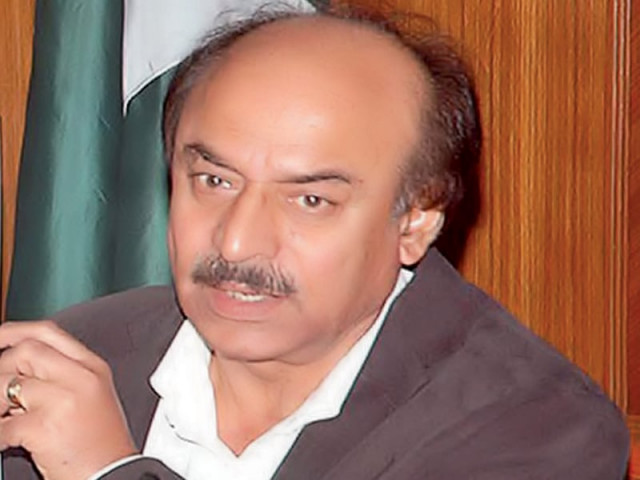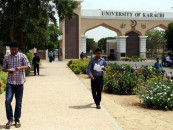Education seminar: ‘Slim chances of education sector improving in Sindh’
Speakers express concern over the falling standards of education in the province.

"The situation in Sindh is nothing less than an education emergency," Education Minister Nisar Khuhro.
These views were shared by the speakers, including education minister Nisar Khuhro, at a seminar on Sunday evening. “Senior high school teachers are drawing as much as Rs100,000 a month but the standard of education has seen little improvement,” said Khuhro. He requested the civil society to help the government monitor the performance of such teachers and put an end to the phenomenon of absentee teachers. Khuhro said that entire population of Sindh is responsible for the fall in education standards at public sector schools. “Instead of owning our institutions we have become spectators who are eager to point out the malaise but are not ready to contribute their bit.”

He also said that the government is initiating O level education programme and plans to build 25 O levels schools in each district of the province.
“I have been told that at least 24,000 schools are still without electricity, 20,000 have no drinking water while 16,000 lack washroom facility,” he said. “This is nothing less than an education emergency.” In a rather startling disclosure, he said that Rs118 billion out of Rs132 billion will be spent on salaries.
Sindh Agriculture University vice chancellor Dr A Q Mughal, meanwhile, opposed the transfer of higher education from the governor to the chief minister. “This will cause further deterioration in standards as resources will be used for political favours.”
He gave the example of his own university and said that it appears as if it is a headquarter of different political parties. He further said that 70 per cent of his time is spent in dealing with the problems caused by the comrade culture of the nationalist parties.
Sharing examples of political interference, he said the education minister himself helped free a criminal who was charged by the university. “The minister was stuck in a blockade by the accomplices of the culprit when he was passing through Tandojam,” he said. “Just to get the road opened he used his influence to set that person free.”
Published in The Express Tribune, July 30th, 2013.



















COMMENTS
Comments are moderated and generally will be posted if they are on-topic and not abusive.
For more information, please see our Comments FAQ